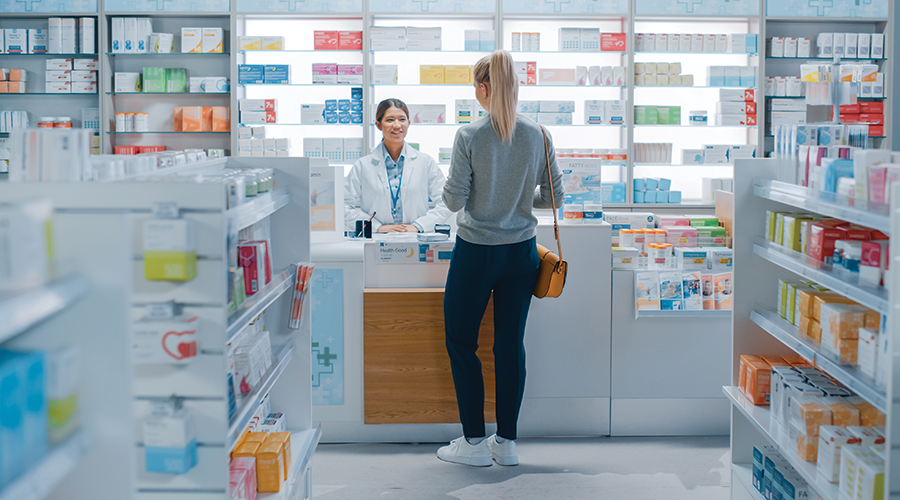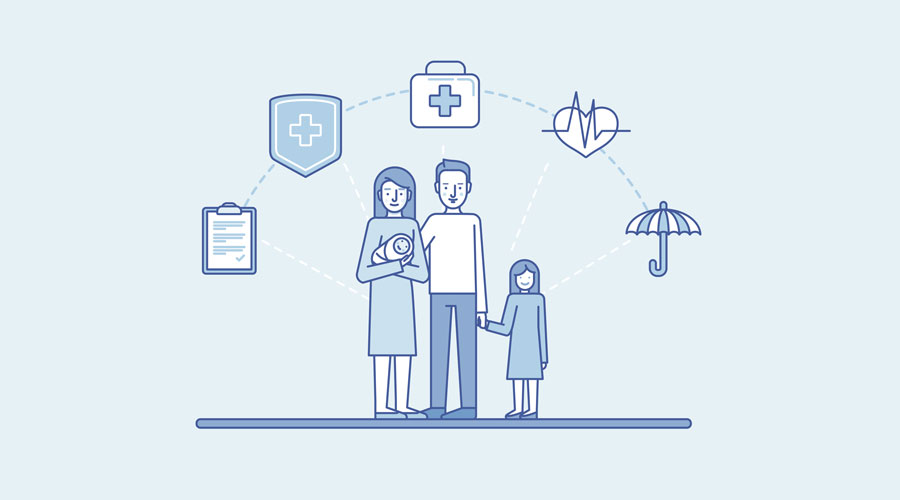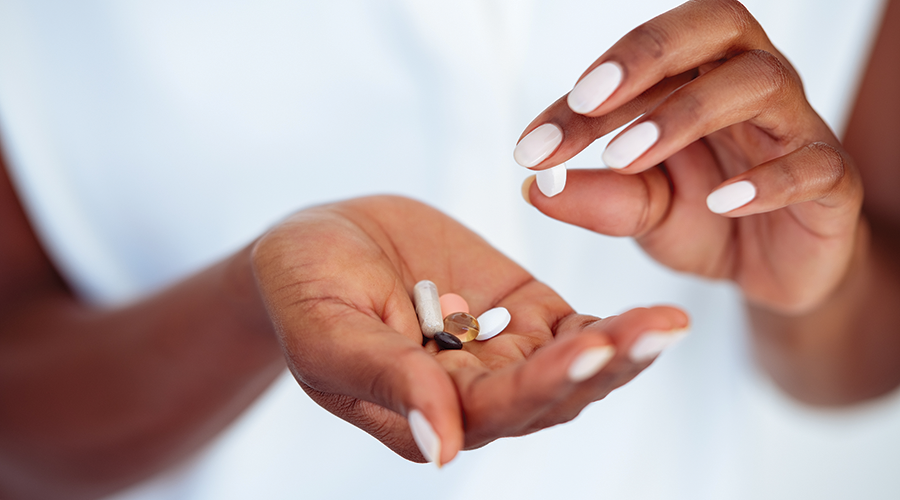Inside: Pharmacists are uniquely equipped to bring better health to their communities. Here are some ideas to get you started.
As a pharmacist, you’ve dedicated your career to keeping your community healthy. You’ve probably expanded your role from simply providing medication to offering services that help patients live healthier, happier lives.
But you can do more. Starting a community outreach program can help improve health outcomes for citizens who are most in need.
It can also improve your business. Sharing your expertise, your time, or your space comes with an added benefit of connecting with new patients who could become your patients. It also promotes your pharmacy as a true community pharmacy that puts patients first.
Choose an Issue
There are countless ways to offer outreach through your pharmacy. Here are some ideas to get you started.
Surgeon General
If you’re not sure what to tackle, turn to the U.S. Surgeon General’s priorities for inspiration.
Opioids and addiction
More than 49,000 Americans died from opioid overdoses in 2017, according to the CDC. “Today in America, addiction is a public health crisis,” said the Office of the Surgeon General (OSG). “The opioid epidemic and substance use disorders more broadly have become one of the most common chronic illnesses in the U.S.”
Outreach ideas:
- Educate parents–either by hosting your own informational meeting or by visiting existing organizations like parent-teacher associations, neighborhood groups, or advocacy groups–on how to keep prescription drugs out of teens’ reach.
- Hold training sessions to teach patients, caretakers, and family members how to properly use Naloxone. You may also be able to use these events to distribute Naloxone. Many states have standing prescriptions, and insurance will often cover it.
Tobacco
Tobacco use is the leading cause of preventable death in the United States and worldwide. “A tobacco free lifestyle not only means a lower risk of early death–it also means less chance of developing heart disease, cancer, lung disease, stroke, periodontal disease, and a host of other health conditions,” according to the OSG.
Outreach ideas:
- Host tobacco cessation support meetings
- Educate patients on the dangers of vaping—many people mistakenly believe it’s safe
- Donate and help distribute over-the-counter tobacco cessation products like lozenges and patches
Community health and economic prosperity
“America’s prosperity is being hampered by preventable chronic diseases and behavioral health issues,” says the OSG. “A population with poor health results in workforce shortages, absenteeism, presenteeism, work-related injuries and illnesses, profitability concerns, and challenges with workforce recruitment and retentions.”
Outreach ideas:
- Hold a job fair or create a scholarship to cover costs associated with becoming a licensed pharmacy tech
- Work with local social services and community resources to schedule one-on-one consultations with low-income patients to discuss ways to save money on prescriptions and provide free medication reviews
- Build a program to help low-income patients get to their appointments using public transportation or volunteer drivers
Know your people
You’re an expert on the needs of your patients and the area you serve. For some pharmacies, a natural fit would be senior-focused outreach like fall prevention seminars. For others, it may mean targeting young families with back-to-school immunizations or information on household poisons.
Keep it personal
You may already have a cause that’s close to your heart. Passionate about mental health? Educate your community like one Canadian pharmacist did in a 2015 study. The pharmacist paired with a local nurse to hold recurring community discussions on mental health topics.
“The first one was more ‘let’s talk’ sort of thing about mental health,” the pharmacist said in the study. “And we had a really big turnout. And then the second one we did was on dementia. And the last one we just did was on grief.”
The study was an exploration of More Than Meds, a Canadian program aimed at helping community pharmacies promote and support mental health and well-being.
Serious about preventing diabetes complications? That could take a number of forms:
- Hold a diabetic supplies drive. Collect donated test strips, lancets, monitors, and insulin to distribute to diabetic patients in need–if it’s legal in your state
- Offer walk-in foot checks to quickly identify problems before they get worse
- Host diabetes screening clinics at local community centers or other convenient locations
- Start or sponsor a walking club to help patients with and without diabetes stay active in a low-impact, socially stimulating way
Focus your efforts on an aspect of health that you’ve got a personal interest in and you’ll never lose motivation.
Find inspiration
Pharmacies large and small across the country are already doing community outreach. Use their ideas to help meet the needs of your own community.
In Georgia, pharmacists helped seniors by presenting at luncheons hosted by various civic groups in the Augusta area. The topics were tailored to the geriatric population and included:
- Warning signs and prevention of stroke
- Warning signs and treatment of heart failure
- The do’s and don’ts about anticoagulation therapy
- Osteoporosis and making strong bones
The University of Florida School of Pharmacy has put on a number of great outreach events that a community pharmacy could adapt. The Great Gator Health Fest, held each year in November, offers free cholesterol testing, diabetes screenings, and bone density tests for football fans who are on campus for game day. Your version doesn’t have to be sports-related, but target high-traffic times or events.
Look for family festivals, county fairs, and cultural events for opportunities to meet patients where they already are. In 2014, UF pharmacists in Jacksonville provided more than 200 blood glucose, cholesterol, and blood pressure screenings at a Hispanic expo. They also volunteered to throw a Halloween event for children with diabetes at the Jacksonville Zoo in conjunction with the zoo’s Spooktacular event.
Use the pharmacy calendar
Look for specific national observances or days that focus on specific health issues to participate in. For example, during National Immunization Awareness Month in August, you could partner with an organization to offer discounted immunizations to patients in high-need areas. Or, during American Heart Month, you could offer free blood pressure and cholesterol screenings in areas with large minority populations, which have a higher rates of cardiovascular disease due in part to barriers to diagnosis, according to the American Heart Association.
Join Forces
The key word is community, so don’t be afraid to partner with other organizations. Pooling resources and sharing expertise can increase the impact of your outreach program.
In West Virginia, five independent pharmacies teamed up with the Center for Disease Control and Prevention and the West Virginia Division of Tobacco Prevention to launch a smoking cessation program. The results were impressive: Ten weeks later, 40 percent of patients who participated in the program had quit smoking. After 24 weeks, more than a third of participants were still smoke free.
Pharmacy schools are experts when it comes to community outreach. One such example is the University of Michigan School of Pharmacy, which partnered earlier this year with a senior community to help residents manage their medications. Take a page from the Wolverines’ playbook by connecting with independent living communities a few times a year to help seniors stay on top of their health.
Here are some additional partnerships, resources, and event guides (compiled by the APhA) to help you choose and create an outreach for your pharmacy:
- American Medicine Chest Challenge: Nationwide disposal day for unused medicine
- Know Your Dose: Organized by the Acetaminophen Awareness Coalition to help patients understand safe acetaminophen use
- Million Hearts Initiative: An initiative to fight heart disease and stroke
- National Memory Screening Day: an Alzheimer’s Foundation initiative
- Script Your Future: A National Consumers League (NCL) campaign for medication adherence
- Stop Diabetes: A partnership between APhA and the American Diabetes Association to help families adjust to life with diabetes
- Up and Away and Out of Sight: An educational program to remind parents that medicines should be kept away from children
Plan the Program
Every independent pharmacy is different. So is every community. Here are some things to consider when designing your pharmacy’s outreach program.
Determine what you can spend
Community outreach programs don’t have to be expensive, but you can’t give back without, you know, giving. That contribution may come in the form of time, labor, supplies, or cash—and likely a combination of those.
If you’re interested in a form of outreach that will affect your books, talk to your financial and tax professionals. You may be eligible for tax breaks to offset the cost of your program.
Decide how often you’ll do outreach
Do you want to spend most of the year preparing for a big annual event? Or would you rather dedicate two Saturdays a month to a no-frills undertaking? You’ll want to consider how much time you have to give—remember, this is in addition to your busy schedule running a small business.
You’ll also want to make sure your time commitment and the scope of your outreach are in sync. If you’ve selected a passion project you can’t wait to get started on, the challenge will be paring things down to a schedule you can handle. If you know your availability but aren’t set on an issue or activity yet, let timing guide your decision.
Involve your staff
You’ll need buy-in from your employees. What exactly are you asking of them? In some cases, you may be asking them to give up their limited free time to work extra hours on outreach projects. In other cases, you may be pushing more of your pharmacy work onto staff while you donate your own time and expertise. Make your request clear, and be prepared for some employees to say no.
One way to help get more people on board is to ask your staff about the issues and causes they care most about. An employee whose family has been deeply affected by Alzheimer’s disease will likely be more motivated to help with that disease than another health issue. Coming together for a shared purpose is also a great way to strengthen your team.
A Member-Owned Company Serving Independent Pharmacies
PBA Health is dedicated to helping independent pharmacies reach their full potential on the buy-side of their business. Founded and owned by pharmacists, PBA Health serves independent pharmacies with group purchasing services, wholesaler contract negotiations, proprietary purchasing tools, and more.
An HDA member, PBA Health operates its own NABP-accredited secondary wholesaler with more than 6,000 SKUs, including brands, generics, narcotics CII-CV, cold-storage products, and over-the-counter (OTC) products — offering the lowest prices in the secondary market.












